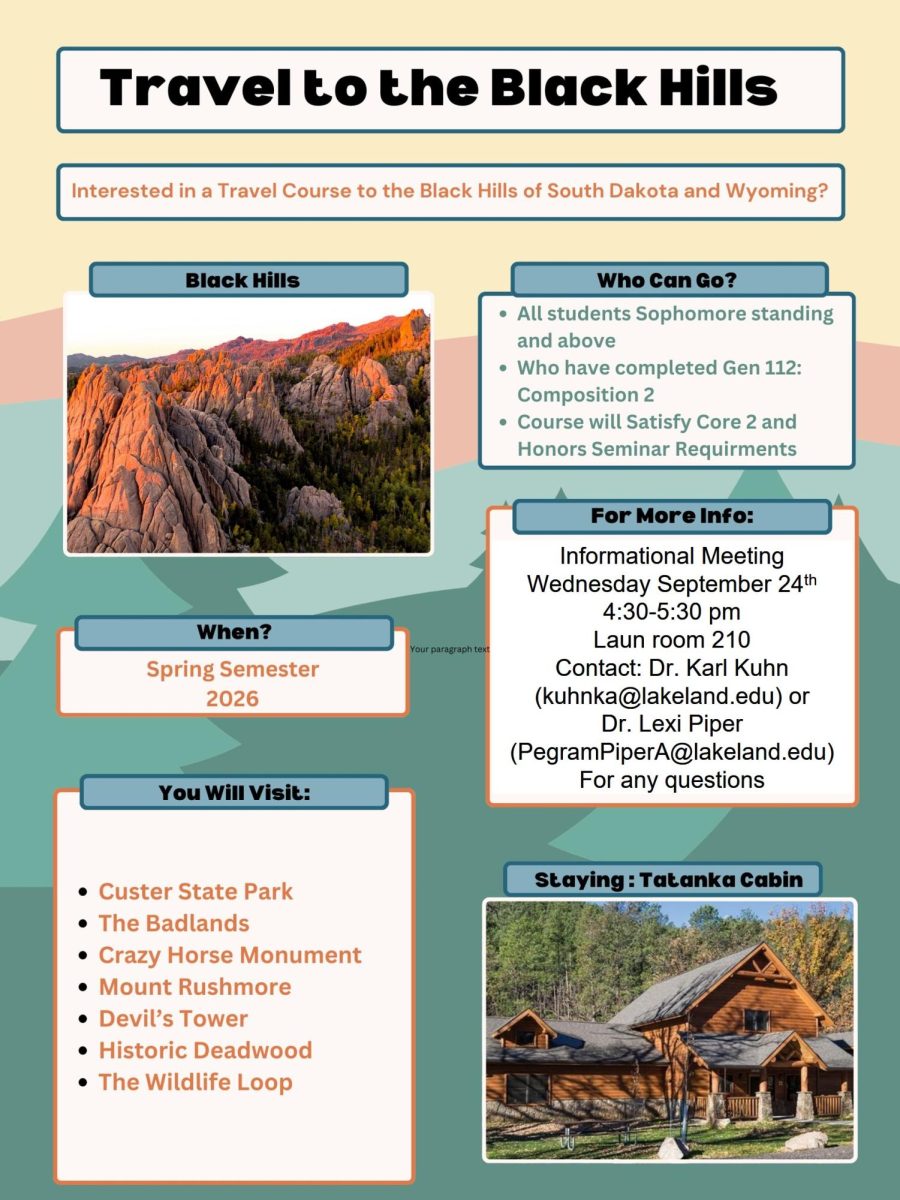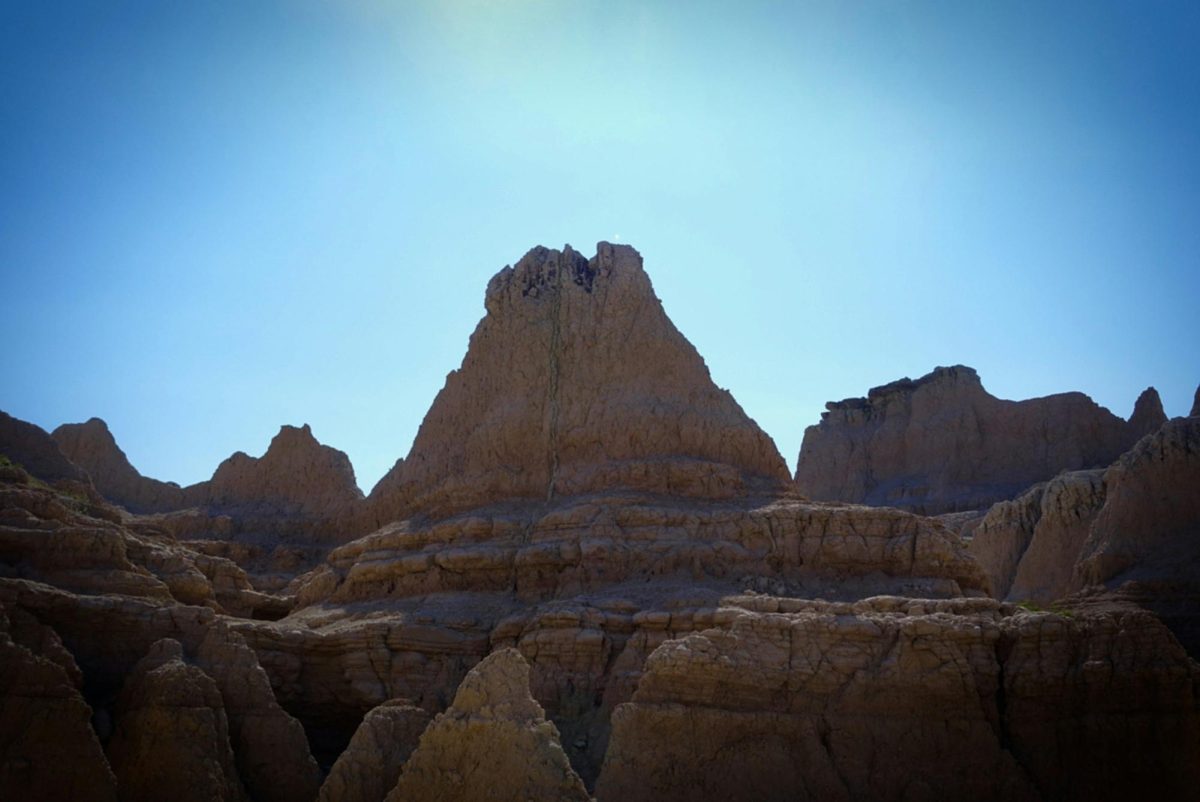Next semester, Lakeland University is offering a brand-new travel course that will focus on exploring the benefits and challenges of America’s public lands. This course will be instructed by religion professor, Dr. Karl Kuhn and composition professor, Dr. Alexis Pegram-Piper. The class will conclude with a week-long trip to the Black Hills of South Dakota and Wyoming.
In this course, students will learn about the history and present state of America’s public lands, as well as the benefits and challenges of the indigenous peoples who lived and still live there. The students will also get the chance to experience the beauty of these public lands firsthand during the trips that will be taken.
While in the Black Hills, students will visit the Badlands, the Crazy Horse Monument, Mount Rushmore, Devil’s Tower, the Historic Deadwood and the Wildlife Loop. They will also stay at the Tatanka Cabin, located in Custer State Park and near the Wildlife Loop. Students will not be limited to only viewing these places, as the professors are hoping to give the students enough downtime to form groups, along with a faculty member, to visit other places that are wanted by the class.
Students that are eligible to enroll in this course must be sophomore standing or above and have completed GEN 112: Composition II. Although labeled as an honors course (HON 370), this course is open to all students who are interested and will count towards a Seminar II, Honors Seminar or an elective credit.
As of now, the course does not have a set meeting time for next semester, and the professors are open to ideas. However, they are thinking about choosing a long period on Saturdays, so the class would be able to travel to nearby parks during class time. Some close by parks that the students may travel to include the Kohler-Andrae State Park and the Kettle Moraine State Forest, as well as other, smaller parks in the surrounding area.
While the students are visiting these lands, they will learn about the history of the land itself as well as the history of the people who have lived there (if applicable). When learning about the indigenous peoples, lessons will be focused on their cultures and values, as well as how they utilized the lands around them to make life work.
When prompted with the question: “why do you think this course will be impactful to students who take it,” Dr. Kuhn replied by stating that the course will address “…a critically important topic, as public lands play a vital role in the present and future prosperity and security of our nation and the health of our democracy.”
While conversing with the professors in a recent informational meeting, the students have mentioned the importance of being given a fundraising opportunity for those that are unable to or are nervous about the price tag, $1,200 per student, of the trip. Both professors have showcased their want to do fundraising, and they are currently getting in touch with their higher-ups to make it a reality for students that are interested in taking the course.
The more students that enroll in the course, the less each student will have to pay to attend the Black Hills trip. Currently, there are about twenty students who have expressed their interest in the professors. The first non-refundable deposit of $500 is due on Nov. 30, and the next $500 will be due on Jan. 30. If the course does not receive enough enrollments, the course will be canceled, and the students will be refunded for their deposits.
Dr. Piper and Dr. Kuhn are always open to comments, questions or concerns regarding the course and trip. To get in touch with them attend the next informational meeting or utilize their school emails: [email protected] and [email protected].



